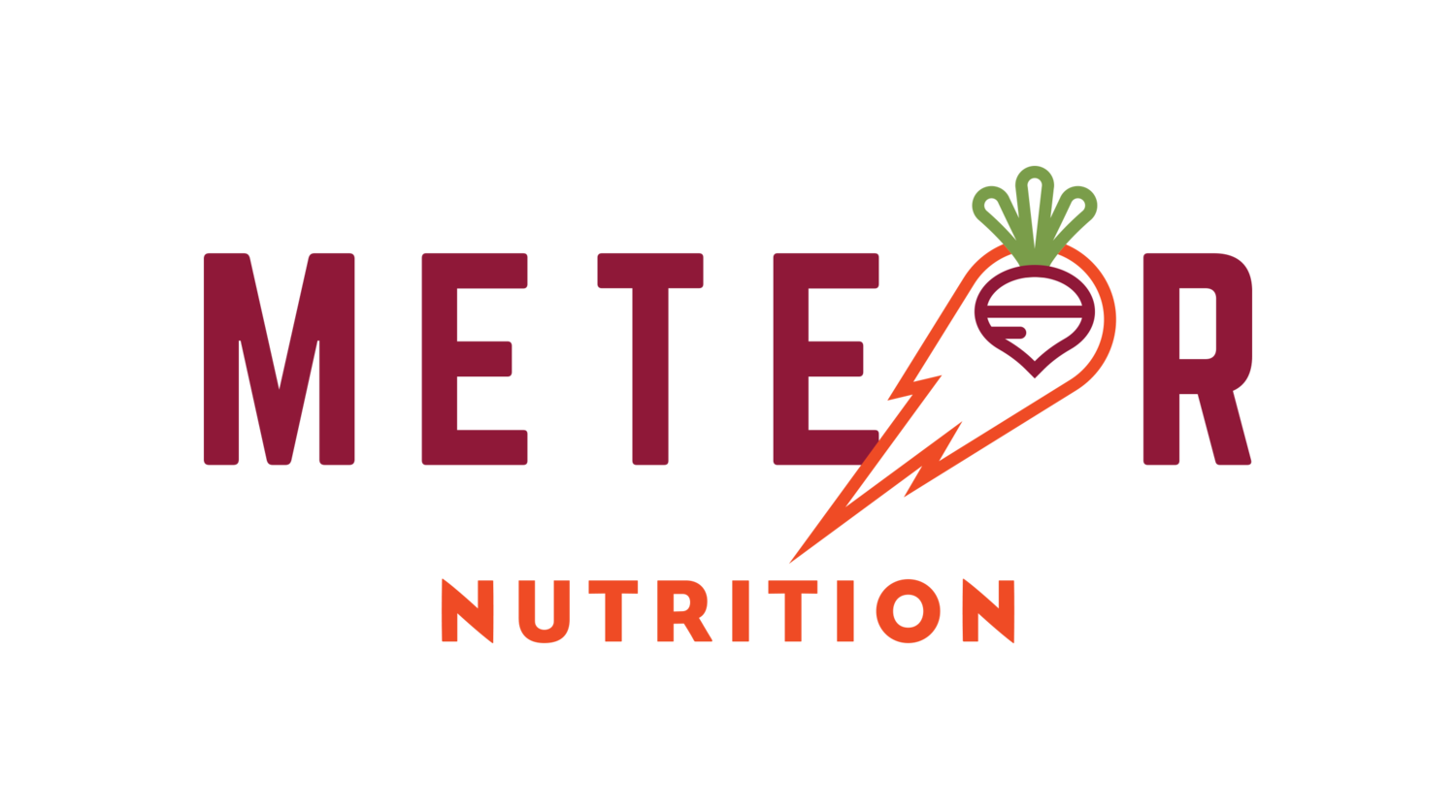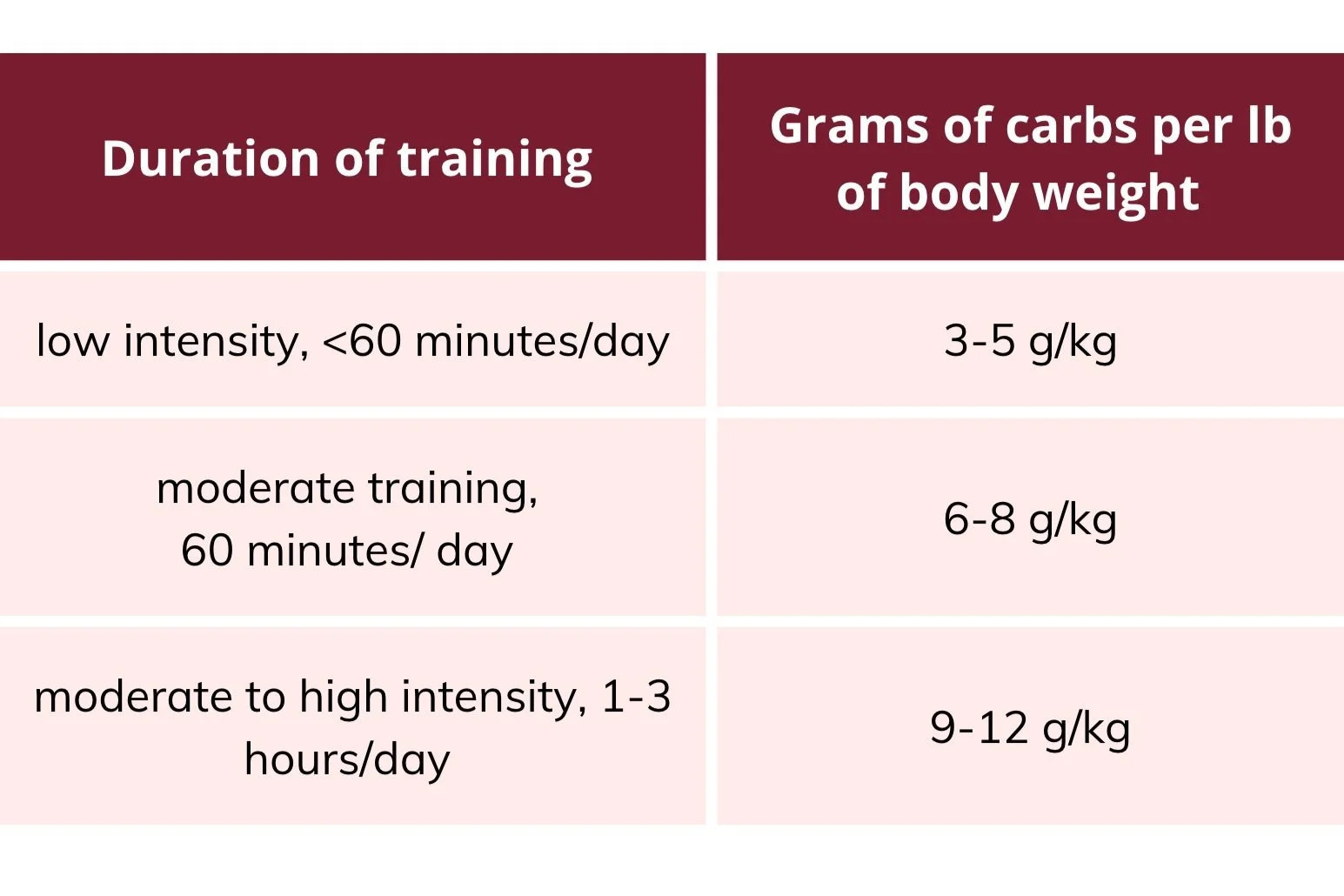Carb Guidance 101
While we can all agree that carbs are delicious, you may be wondering how much carbohydrates you should be consuming, in terms of optimizing your performance. Let’s break it down!
What are carbs? Carbs are fuel!
Carbohydrates are one of three macronutrients in our diet. They’re also your body and brain’s primary and preferred source of energy. Carbs are an essential fuel source — even more so when you lead an active lifestyle.
Carbs:
Provide fuel for exercise
Keep energy levels stable
helps prevent muscle fatigue
Support mood, focus, and concentration
So what’s Glycogen??
Stored carbohydrates!! Carbohydrates that are eaten will be broken down into glucose. Glycogen is “leftover” energy that is stored in the muscles and liver and is made up of connected glucose molecules. Stored glycogen is helpful for performance. Chronically low glycogen storage can lead to fatigue or muscle breakdown. When your body needs fuel, it takes glycogen or glucose from these stores and turns it into energy.
Not all carbs are created equal.
Fueling with the right type of carbs at the right time is important.
Simple: best for pre-workout fuel (low-fiber, fast-digesting)
Digests quickly and is converted to energy
Supports stable blood sugar during exercise
Sources like dried fruit, dates, applesauce, fruit juice, snack foods (pretzels, chips, etc), baked goods, candies
Complex: best for post-workout fuel (higher-fiber, slow-digesting)
Contains fiber to keep blood sugar stable
Helps to refuel depleted muscle glycogen
Sources such as grains and oats, brown rice, quinoa, whole grain breads, starchy vegetables (peas, carrots, etc), potatoes and sweet potatoes
Pre Workout vs. Post Workout
Pre-workout snacks are vital to help fuel your workout and give your body the energy it needs. Before working out, try to stick to mostly carbs. For pre-workout fuel, choose an option that is high in carbs and lower in protein and fat.
5g protein or more
5 g or less of Fiber - choose a pre-workout fuel that is lower in fiber may be helpful in reducing common GI issues
Too much pre-workout fiber can cause bloating, gas, or diarrhea and leave you feeling too full during a run.
Post-workout snacks should include carbohydrates, protein, and fluids. Try to eat something shortly after your workout to help your body replenish its glycogen stores and build muscle.
10 - 15 G protein
20 g carbs
Post-workout, fiber is beneficial in increasing the feeling of fullness and curbing appetite.
How many carbs do I require daily to properly fuel training?
Follow this guide below to to track how many carbohydrates you should be consuming based off your intensity of activity.
To figure out your weight in kilograms, divide your weight in pounds by 2.2. Then multiply your weight in kilograms by the recommended carbohydrate intake to understand how many grams of carbohydrates you should be consuming per day.
For example:
Using the weight of someone who weighs 150 lbs, and is following a low-intensity training day would need 205-340 grams of carbohydrates per day.
150 lbs/2.2 = 68 kg
68 kg x 3-5 g = 205-340 g/day
Performance Plates
So now that you know how many carbohydrates you should be consuming per day, how does this translate to my meals? At Meteor Nutrition we use the concept of performance plates. Performance Plates are a simple visual guideline for athletes based on their performance levels. Each plate differs in portion sizes of macronutrients to help fuel the athlete depending on the level of training.
It’s important to keep our body well fueled as our training changes intensity. As our training increases our carbohydrate intake will increase as well to help fuel our bodies. If we expect to train longer and harder, carbohydrates are key!
Looking for a new yummy fall recipe to try? Check out our fall Kale and Brussel sprout Salad recipe here! Make sure to check out the tips below the recipe to adjust the carbohydrates based on your needs!


